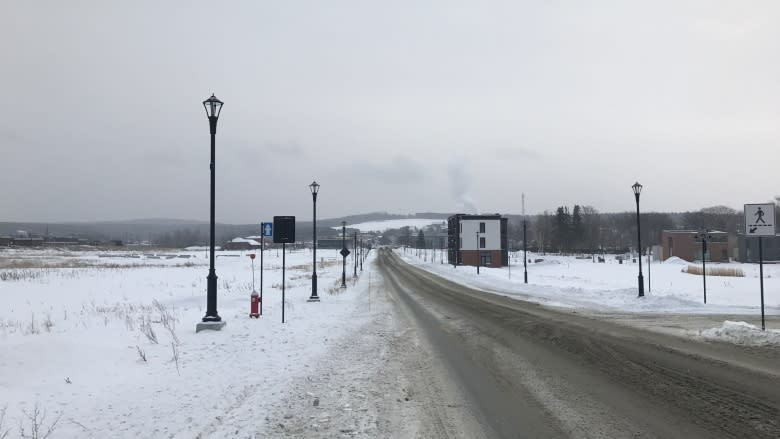Lac-Mégantic residents grapple with verdict while looking to future
Many residents of Lac-Mégantic are grappling with the acquittal of three former railway employees indicted for their roles in the 2013 rail disaster, and what, if anything, it means for what happens to their town now.
On Friday, a jury in Sherbrooke, Que., acquitted locomotive engineer Tom Harding, 56, rail traffic controller Richard Labrie, 59, and operations manager Jean Demaître, 53, of criminal negligence causing 47 deaths.
In general, the verdict has left most townspeople satisfied, with many saying they thought people higher up the corporate ladder at the now-defunct Montreal, Maine and Atlantic (MMA) railway are the ones who should have been tried in connection with the derailment and explosions on July 6, 2013, which killed 47 people.
However, the verdict has not given everyone closure.
Unsatisfying verdict
Raymond Lafontaine lost his son, two daughters-in-law and an employee in the disaster. Soon after, he and his wife of 57 years divorced. Their relationship couldn't endure the grief.
"The verdict says you can kill a town; you can kill 47 people; you can break thousands of peoples lives: all the consequences of that, you're absolved of them," said Lafontaine.
He said despite his best efforts, he still lives with bitter anger, and the acquittal of the three men was a setback in his attempts to carry on.
"After five years, you tell yourself, 'I have to move on,' and I did move on, but there is a voice inside me looking for vengeance. Even if you want to just accept it and you tell yourself, 'I'm at peace,' your subconscious will never accept it."
Lafontaine said he would have liked to see charges that would have led to convictions — some kind of legal consequences for the rail workers involved in the train's operations.
"MMA is responsible for its employees. The bosses are responsible for their employees," he said. "But the employee is supposed to do his job the right way."
"Now, in court, [the workers are] exonerated, even though we know very well that if they had done their job right, as employees, the train wouldn't have gone off track."
He called the financial compensation that families of the deceased received a joke. The money was added to his earnings, so he had to pay taxes on it.
Pushing for a safer town
Jacques Gagnon says he still feel as if he and his family escaped with their lives: His home is only 100 metres from the spot where the train went off the tracks on July 6, 2013.
He is pushing for a judicial inquiry. He thinks it's more important to find out everything that went wrong rather than to determine who is responsible for the tragedy.
He said while he recognizes the justice system isn't perfect, he believes the Crown chose the easy route in prosecuting the locomotive engineer who had last operated the train and two of his colleagues, instead of the company that ran the railway.
He said the real issue is a system that "prioritizes profit over safety."
What matters most to him right now, he said, isn't the verdict, it's safety — his, and the safety of his hometown, a place he really loves.
He said Lac-Mégantic desperately needs the railway tracks to be rebuilt to bypass the town, to keep explosive cargo away from residents.
"The train, the way it passes here, it's not good for the future because people may be afraid to invest in the downtown area," he said.
Lac-Mégantic Mayor Julie Morin agrees, although not all residents share their opinion.
During a town hall event a year ago, Prime Minister Justin Trudeau said the government would speed up the process to build the bypass track.
Mistakes in reviving the downtown core
For resident Jean St-Pierre, what hurt the town second only to the tragedy itself was the mishandling of the reconstruction of the downtown core.
"There were big, big mistakes there," St-Pierre said.
Two businesses, the Metro grocery store and Jean-Coutu pharmacy, were forced to rebuild in a neighbourhood some distance away from downtown, where they'd stood.
Some businesses with minor damage were destroyed rather than renovated.
The town also paid for an expensive bridge so that people could access the relocated businesses, St-Pierre said.
It also built two new streets — Papineau and Frontenac streets — outside the downtown area.
The reconstruction is bad for businesses downtown, he said.
"In Lac-Mégantic, there's nothing close to the lake.… This was a very stupid way to do it."
Mayor Morin has said she is counting on future outside investment, but business isn't what it used to be, merchants say, and taxes are up because of all the new infrastructure.







